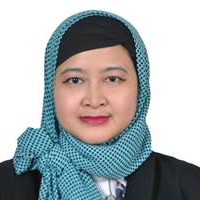Ms Stania Puspawardhani

Revisiting Ecological Islam in Indonesia: From Green Mosque and Eco-Madrasah to Sustainable Zakat
Stania Puspawardhani is PhD scholar at the Gradutae School of Natural Resources Management and Policy, IPB University Indonesia. She has worked extensively as journalist for various news outlets, including Aljazeera English, NHK and Southeast Asia Globe. Her research interests are in the areas of social and political sciences, media studies, ecology and third world approach to international relations (TWAIR). She received BSc in Biology from Bandung Institute of Technology and MSc in American Studies from University of Indonesia.
Revisiting Ecological Islam in Indonesia: From Green Mosque and Eco-Madrasah to Sustainable Zakat
Environmentalism is ingrained within Islam. The Qur’an reflects ecological values by forbidding “oppression” of the creation of God. Some Muslim scholars have even concluded that Islam sees environmental conservation as one of the highest goals of Islamic law. The Muslim world has great potential to positively contribute to environmental protection through its beliefs and doctrine. In Indonesia, ecological practices are being incorporated in many aspects of everyday life, from ritual to schools, finance, and economic empowerment.